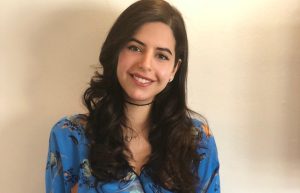Haya is a full-time student studying on our MSc Education programme, specialising in Comparative and International Education. Prior to joining the department she studied International Relations at the School of Oriental and African Studies (SOAS).
What degree did you apply for and why was it important to you to study this?
This academic year I have been studying Comparative and International Education, with a view to identifying and analysing successful approaches to education globally. In the future I would like to play a part in applying these approaches to education systems in the region of my birth.
What do you plan to do once you’ve completed your degree?
My desire to contribute to progressive change lies at the root of my interest in education, and in education reform generally. My long-term professional ambition is to work in education policy and development in the Middle East, in support of empowering, practically effective and social just forms of education. Whether this takes place in the form of third sector, think tank or ministerial work, the opportunity to study Comparative and International Education at Oxford has been invaluable preparation for a role of this nature. By means of such study, I seek to identify tools and approaches currently working well in education policy elsewhere in the world, and to examine how best to make these available to policy-makers in the Middle East in context-specific and culturally-sensitive ways.
What do you most value about the teaching at the department?
Perhaps an element, which strikes most prominently in my mind when considering the teaching at the department, is the commitment to ensuring each student gained something from one another. Stepping in to a classroom of such diverse experiences, and an age group that ranged from 22 to 60, on the first day seemed to be quite daunting. As the academic year comes to an end, I have great appreciation for the consideration tutors placed on the impact of integrating such a diverse spectrum of students in to the learning environment of the CIE classroom. My experience has been one of endless commitment by my tutors and supervisor to ensure I was adequately situated to carryout my studies and pursue my interests.
Why do you think it’s important to study education?
The world is always changing, and educational needs with it. Education systems must constantly reform themselves to meet these needs. Studies of education are guided by the impulse to adapt and improve. Access to education is currently very unequal, horizontally, vertically and globally. Through education studies we can identify ways of addressing these imbalances.
What’s the community like at the department?
The community at the department is one, which fosters great collaboration and constant support. During my time at the department I have formed many relationships with students and staff across a wide spectrum of backgrounds and expertise; I consider my time with the CIE group as invaluable to my growth and learning over the past year, and indeed in the years to come.

